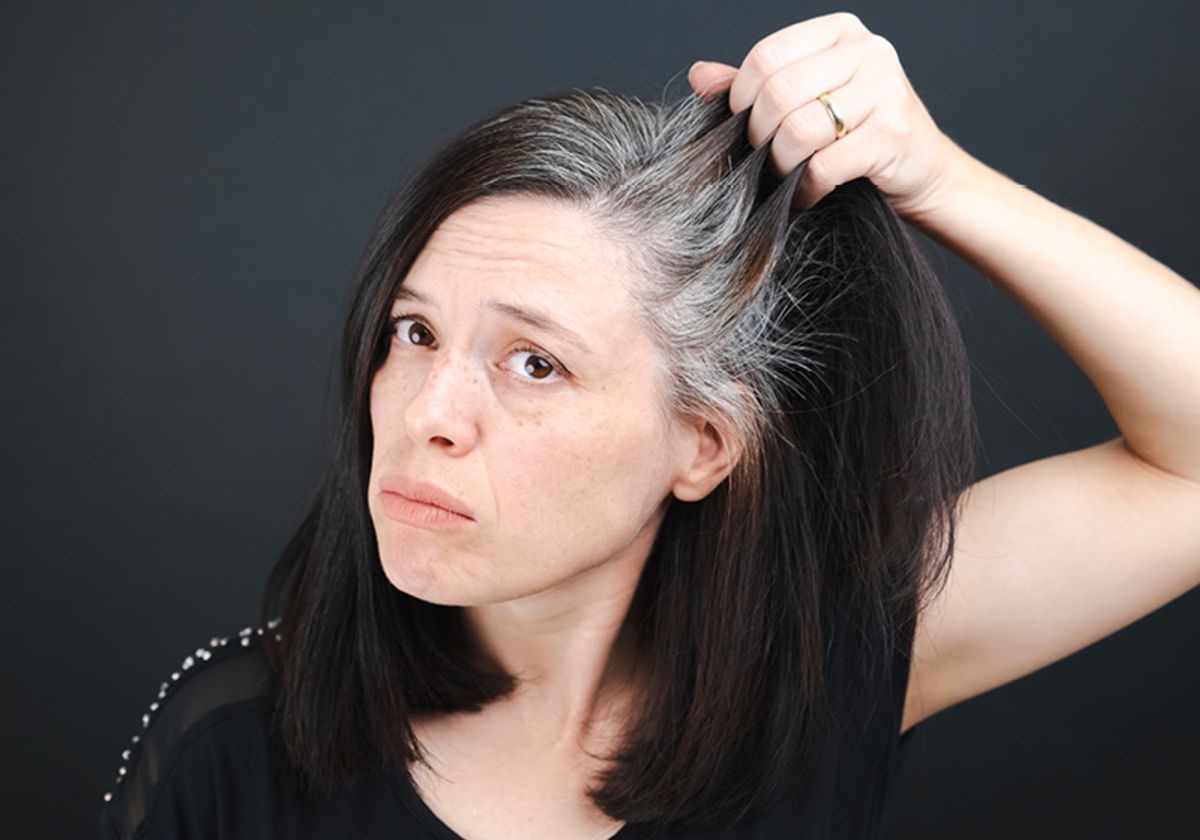






How Does Stress Cause Gray Hair?
Stress and greying have long been linked in folklore and locker-room chat. Recent research, however, gives the anecdote a biological backbone: stress can accelerate the loss or dysfunction of the pigment-producing cells that keep hair coloured. This explainer draws together key findings from laboratory and human studies, examines mechanisms proposed by scientists, and considers whether stress-related greying can be reversed.

How stress affects melanocyte stem cells
Hair colour is produced by specialised cells called melanocytes. These cells arise from a reservoir of melanocyte stem cells (McSCs) housed in the hair follicle. As follicles cycle through growth and rest phases, McSCs differentiate into pigment-producing melanocytes that deposit melanin into the hair shaft. Ageing gradually reduces the McSC pool, but stress appears to accelerate that depletion.
Laboratory studies — most notably a 2020 mouse study published in Nature — showed that acute stress triggers the sympathetic nervous system to release norepinephrine (noradrenaline) in the follicle niche. That chemical signal prompts McSCs to rapidly differentiate, producing a transient burst of pigment cells but depleting the stem cell reservoir. Once the reservoir is exhausted, subsequent hair growth lacks pigment and appears grey or white.
Other biological mechanisms under investigation
While sympathetic activation is a compelling mechanism, it is unlikely to be the only pathway linking stress to greying. Researchers are also studying:
- Oxidative stress: Reactive oxygen species can damage melanocytes and their DNA, reducing pigment production.
- Inflammation: Chronic stress increases systemic inflammation, which can alter the follicle microenvironment and impair melanocyte survival.
- Endocrine effects: Elevated cortisol and other stress hormones may influence pigmentation pathways indirectly through metabolic changes or immune modulation.
- Autoimmune processes: In some hair disorders, immune attack on melanocytes causes depigmentation and could be influenced by stress.
What the human evidence says
Direct human data are more limited than rodent work, but several lines of evidence link stress and greying in people. Observational studies show associations between stressful life events and earlier onset of grey hair. Small experimental studies indicate that hair pigmentation can sometimes change when stress levels fall — for example, cases where previously grey hairs regain colour after stress reduction — suggesting partial reversibility where stem cells remain intact.
However, human hair cycles are long and heterogenous. A hair follicle's history, genetics and the cumulative effect of ageing mean that not every episode of stress will leave a visible mark. Genotype remains the strongest predictor of when and how quickly hair greys.
Practical steps: reducing risk and supporting hair health
Complete reversal of greying is not guaranteed, especially when stem cell pools have been depleted. Still, strategies that reduce oxidative stress and support overall follicle health can be sensible adjuncts:
- Prioritise stress management: evidence-based techniques such as cognitive behavioural therapy (CBT), mindfulness, structured exercise and improved sleep reduce physiological stress markers.
- Optimise diet: sufficient protein, iron, B vitamins (particularly B12), copper and antioxidants support melanocyte function.
- Avoid smoking: tobacco is linked to premature greying and accelerates oxidative damage.
- Limit excessive bleaching/chemical damage: repeated chemical trauma can harm follicles and existing pigment cells.
- Seek medical advice for rapid or patchy greying: an underlying autoimmune or metabolic cause may be treatable.
Key Takeaways
- Stress can accelerate greying primarily by prompting melanocyte stem cells to differentiate and become depleted.
- Sympathetic nervous system signalling and norepinephrine were implicated in key animal studies.
- Oxidative stress, inflammation and endocrine changes also contribute to pigment loss.
- Some evidence suggests partial reversibility if stem cells remain; full restoration is not always possible.
- Managing stress and protecting follicle health (diet, sleep, avoiding smoking) can reduce risk and support hair pigment.
Frequently Asked Questions
Can stress make your hair go grey overnight?
Not in the literal sense. Hair that has already grown out cannot change colour instantly; what appears like overnight greying is usually increased shedding of pigmented hairs combined with the emergence of new unpigmented hairs. Acute stress may accelerate processes that become visible quickly, but the biology unfolds over weeks to months.
Is grey hair caused more by genetics or stress?
Genetics determines the typical timing of greying for most people. Stress can modulate that timeline — sometimes noticeably — but it rarely overrides strong genetic predisposition on its own.
Are there treatments that restore natural colour?
Currently, cosmetic colouring remains the most reliable option to mask greying. Some early-stage therapies aim to preserve or replenish melanocyte stem cells, and antioxidant or anti-inflammatory approaches are under study, but clinical, widely available reversal treatments are not yet established.
Can lifestyle changes actually reverse greying?
There are increasing reports and small studies suggesting partial repigmentation after substantial stress reduction and improved health, particularly where follicles still contain viable stem cells. However, outcomes vary and are not guaranteed.
Explore More: Discover related reads from Hairporium — News • Guides • DIYs • Expert Articles.
More From the Experts







